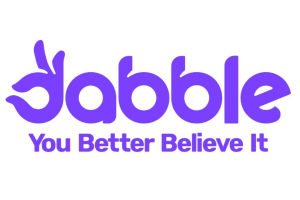
Think about the last software program you purchased for your employees. You may have needed only one or two of its features, so you kept the previous program that your employees used before as well. After that was implemented, you noticed that a few essential features of your business’s analytics software don’t work with the new software. As a result, you purchased a data and analytics add-on specifically for the latest software. To complicate matters even more, your BI team must keep using the previous data tool since it offers features the new one does not.
If that situation sounds chaotic, that’s because it is. Tech sprawl is a real problem. Tech sprawl can be defined as the process where companies overload different, overlapping software programs, cloud applications, or technology products in order to fill a gap. Companies end up having one, two, or three of every type of software imaginable, using each one only for one or two features.
The negative impact of tech sprawl
Eighty percent of IT leaders believe that tech sprawl is one of companies’ biggest problems. (https://www.idginsiderpro.com/article/3614785/the-battle-to-combat-data-sprawl-what-cios-need-to-do-now.html). The following adverse effects stemming from the phenomenon are examples of how it slows down digital transformation. Learn what they are and how to avoid falling victim to tech sprawl.
- Tech sprawl is expensive. Purchasing numerous programs or products to use one or two features from each one isn’t only impractical but also costs money. The licensing fees can quickly add up, and new tech tools are generally pretty pricey. Many times, the software a company purchases becomes buried under newer programs and is easily forgotten. An estimated 40 billion dollars a year is spent on unused software. When businesses seek to cut costs, they inadvertently inundate themselves with more debt by purchasing too many technology-related products.
- Tech sprawl is risky. When companies use too many programs in their workflow processes, they leave private data vulnerable to cyber-attacks. It can be impossible to track and secure every single program employees use. As employees incorporate new cloud-based programs into their workflows, their IT department must learn new security measures for those applications. As tech sprawl grows, the average IT department simply cannot handle the high demand. This leaves many unprotected files at risk for data breaches.
- Tech sprawl leads to siloed data. Siloed data is a major problem in companies that use various programs in their operations. Since not all software programs “speak” to each other, employees must learn how to use different applications and save login details for each one. When this problem arises in a contact center, agents could find themselves trying to access a program they accidentally uninstalled or forgot the password. This can lead to very unhappy customers if this type of scenario occurs while on the phone with an agent.
- Tech sprawl hinders good communication within the company. Many software applications allow users to easily communicate with one another by simply tagging them within the app and relaying the message they wish to send. Problems could arise when the recipient does not use that program and fails to get a notification. Sometimes, they haven’t learned how to use it. In other instances, employees may send each other files that can only be opened with a program that the recipients do not have. This can become a more significant problem if several employees use different programs and run into the aforementioned scenarios daily. Messages get lost, employees become confused, and frustration builds up as simple projects take too long to execute.
One platform changes everything
Now that so many companies offer work-from-home options or have converted to 100% remote, tech sprawl is a problem that they definitely want to avoid. Transforming your contact center into a fully digital one is much easier when all agents need is one program to work.
Implementing a unified and customizable omnichannel cloud platform (livevox.com/what is a cloud based) in your contact center’s workflows is exactly how companies avoid falling into the tech sprawl trap. An omnichannel platform brings all the central components of a contact center’s operations under one roof. The RoI numbers speak for themselves: companies saw a 229% return on their investments after eliminating wasteful programs and using the platform.
Unlike other hosted programs, a cloud-based platform employs top cybersecurity talent to ensure customer data is safe and secure from cyberattacks. They also boast several certifications, such as PCI DSS and (AICPA) SOC 2.
Since the platform houses all the tools an agent needs to do their job, the extra software programs or cloud applications aren’t necessary anymore. Those additional cybersecurity risks are eliminated because all your operations stem from one highly secured platform.
Siloed data is no longer a problem once companies switch over to an omnichannel platform. The platform provides everything a contact center needs, from analytics to quality management and sales support to agent performance tools. Agents do not have to worry about navigating different programs; everything will be easily accessible in one place.
Watch your company’s productivity increase as communication improves. A cloud-based platform offers personalized notifications for users. All communication can be done through the platform that everybody has access to. Since it provides major departments of a contact center with all they need to do their jobs, the concern over communicating through various different programs is eliminated.
Tech sprawl is undoubtedly a problem now that most companies have moved to cloud-based solutions. With some due diligence and the use of one omnichannel platform, wasteful programs and overspending are much better controlled. Your contact center will benefit as your agents provide a positive experience for your customers with the help of a cloud-based omnichannel platform.
Featured Image Credit: Aleksandar Pasaric; Pexels; Thank you!
Source link




